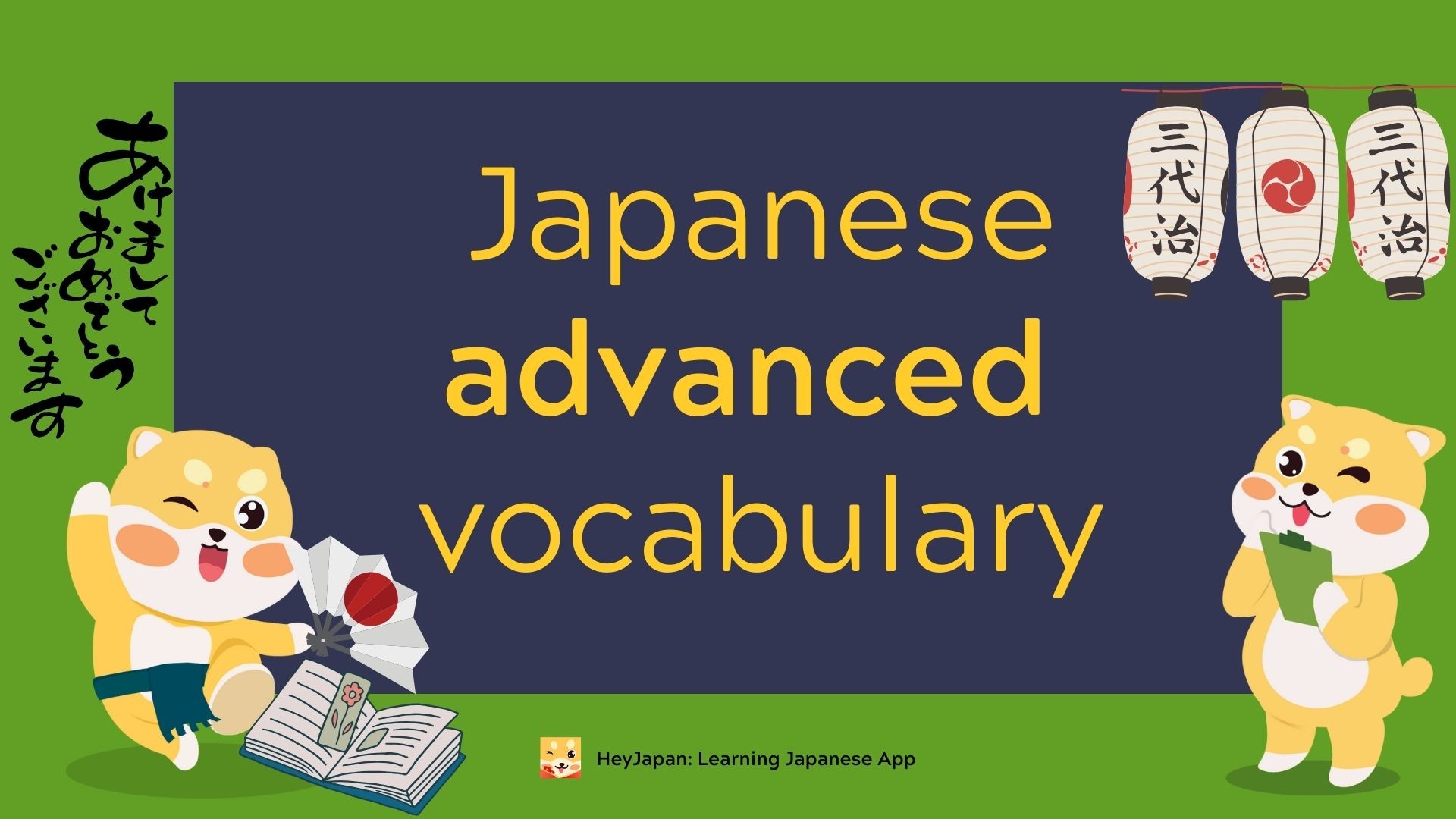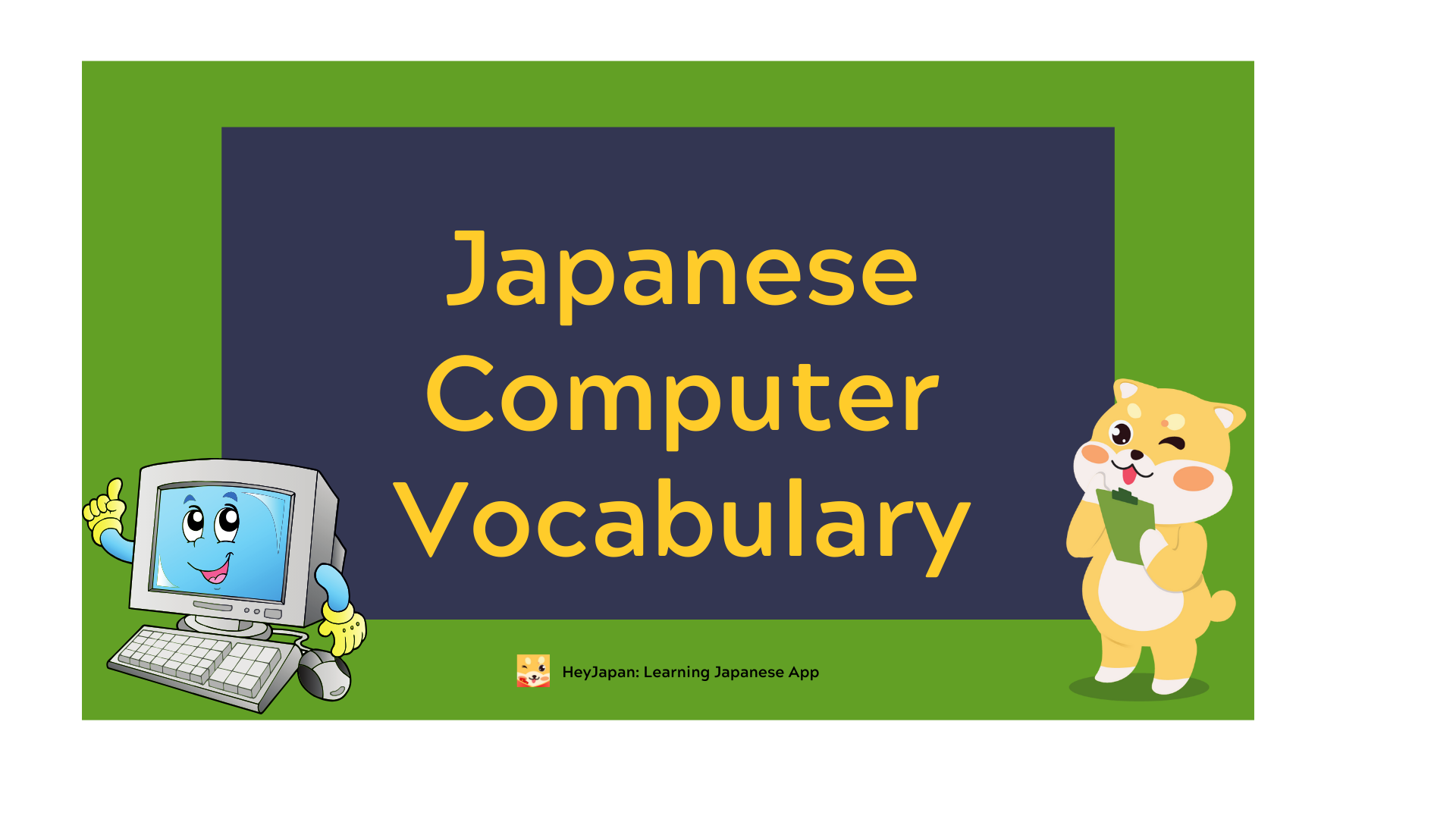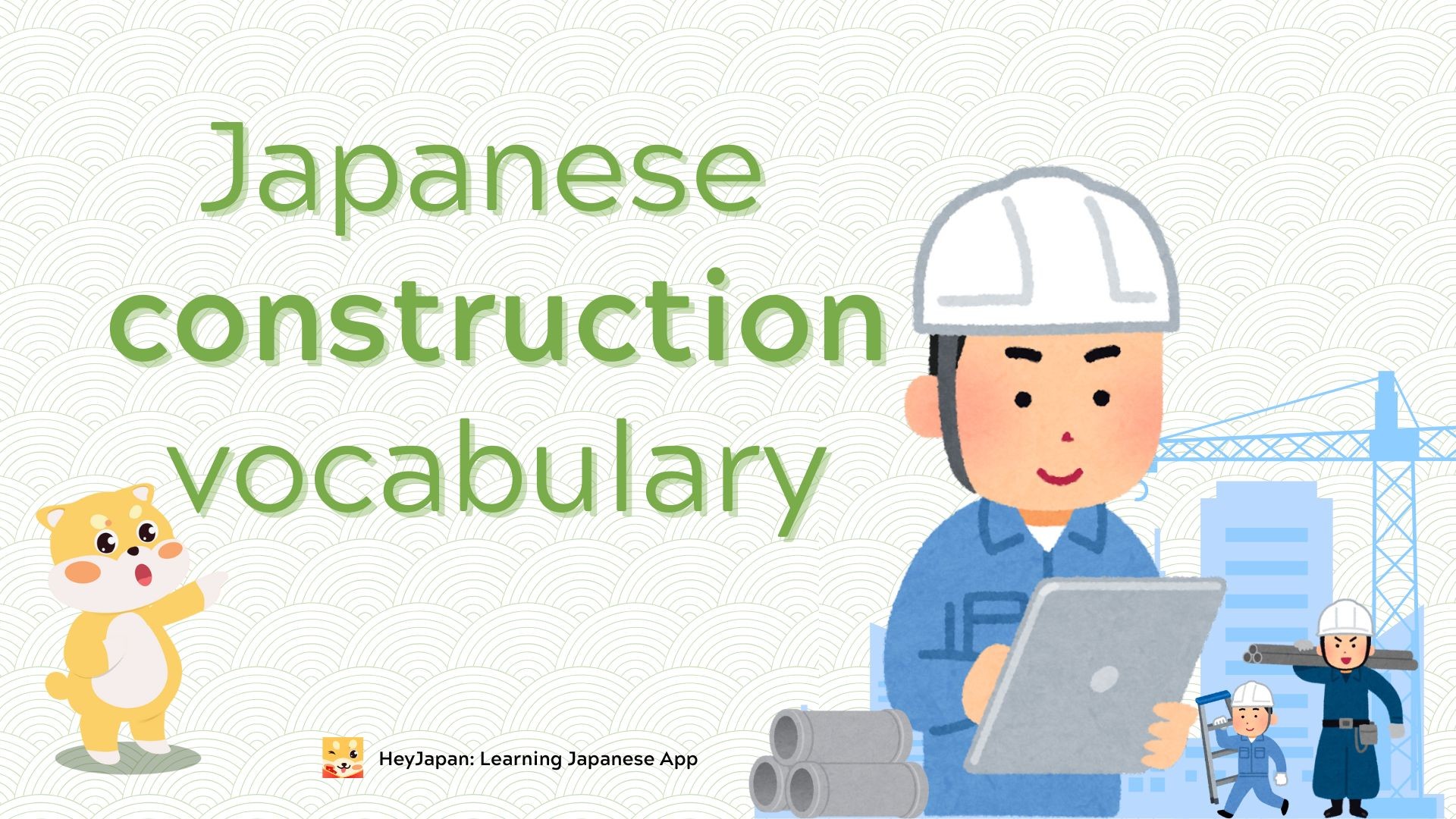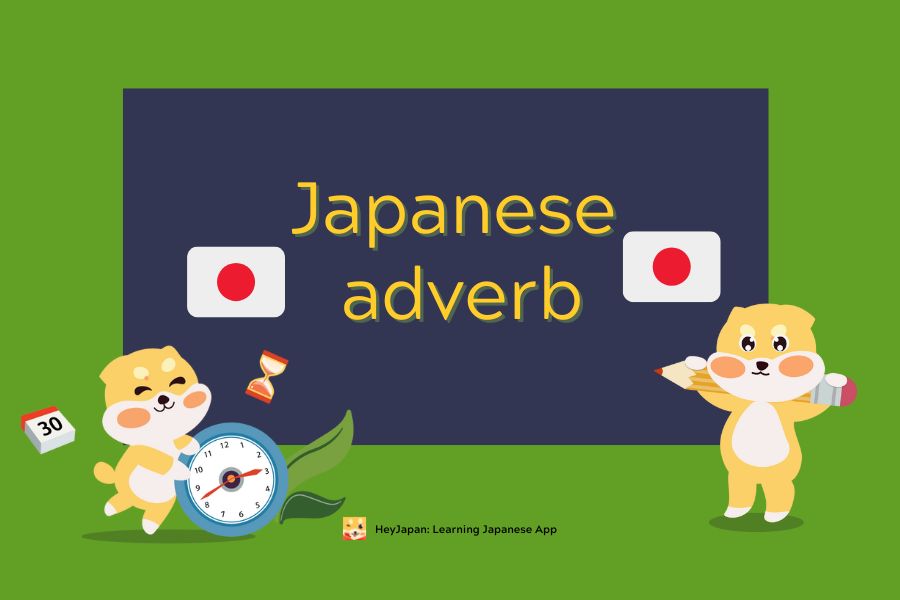- 1. Advanced Japanese Vocabulary List
- 1.1 Abstract & Academic Terms
- 1.2 Business & Economic Terms
- 1.2 Business & Economic Terms
- 1.4 Technology & Innovation
- 1.5 Advanced Emotional & Expressive Words
- 2. Advanced Idioms & Yojijukugo (四字熟語)
- 5. FAQ (Frequently Asked Questions)
Ready to take your Japanese skills to the next level? This guide covers over 100 advanced Japanese vocabulary words across key topics like business, emotions, news, and technology. Whether you’re aiming for JLPT N1 or want to understand native content better, these words will expand your fluency and confidence.
1. Advanced Japanese Vocabulary List
1.1 Abstract & Academic Terms

- 概念 (gainen) – concept
- 検討 (kentou) – consideration, discussion
- 認識 (ninshiki) – awareness, recognition
- 体系 (taikei) – system, structure
- 解析 (kaiseki) – analysis
- 合理性 (gōrisei) – rationality
- 解析力 (kaiseki-ryoku) – analytical ability
- 機能 (kinou) – function
- 説明 (setsumei) – explanation
- 成長 (seichou) – growth
Example:
この概念は、経済学の基礎となる。
Kono gainen wa, keizaigaku no kiso to naru.
"This concept forms the foundation of economics."
1.2 Business & Economic Terms

- 交渉 (koushou) – negotiation
- 投資 (toushi) – investment
- 収益 (shuueki) – profit
- 市場 (shijou) – market
- 合併 (gappei) – merger
- 企業 (kigyou) – enterprise
- 行動計画 (koudou keikaku) – action plan
- 企画書 (kikakusho) – proposal document
- 金融 (kin'yuu) – finance
- 利益 (rieki) – gain
Example:
事業の成長には、適切な投資が必要だ。
Jigyō no seichō ni wa, tekisetsu na tōshi ga hitsuyō da.
"Appropriate investment is essential for business growth."
1.2 Business & Economic Terms
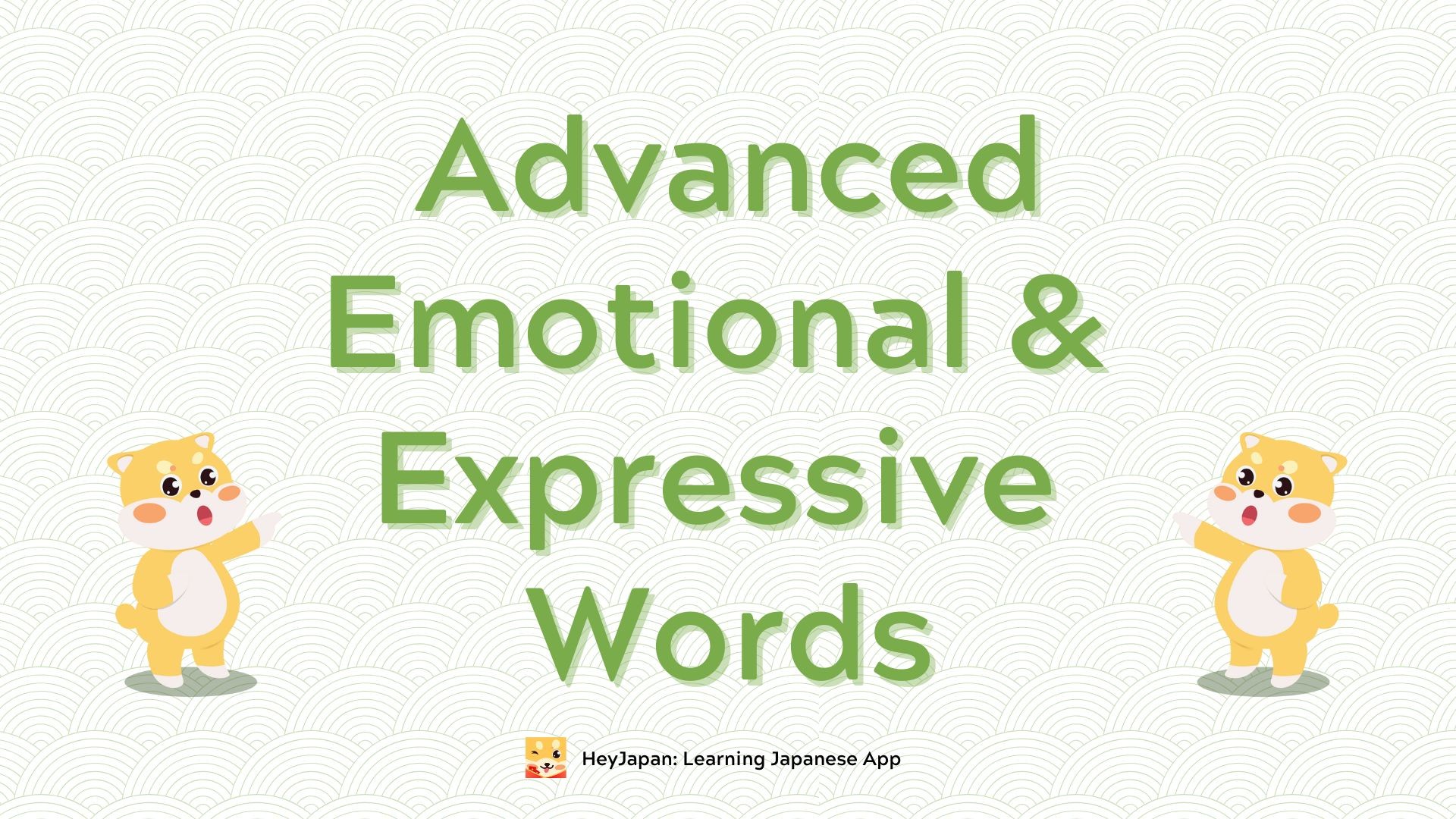
- 政策 (seisaku) – policy
- 協定 (kyoutei) – agreement
- 選挙 (senkyo) – election
- 訴訟 (soshou) – lawsuit
- 議会 (gikai) – parliament
- 法案 (houan) – bill (legal)
- 基盤 (kiban) – infrastructure/foundation
- 決定 (kettei) – decision
- 推進 (suishin) – promotion/advancement
- 決議 (ketsugi) – resolution
Example:
政策の変更は、議会の決議が必要です。
Seisaku no henkou wa, gikai no ketsugi ga hitsuyou desu.
"Policy changes require a parliamentary resolution."
1.4 Technology & Innovation

- 人工知能 (jinkou chinou) – AI
- 開発 (kaihatsu) – development
- データ分析 (deeta bunseki) – data analysis
- 仮想現実 (kasou genjitsu) – virtual reality
- 自動運転 (jidou unten) – autonomous driving
- 作業効率 (sagyō kōritsu) – work efficiency
- システム更新 (shisutemu kōshin) – system update
- ネット技術 (netto gijutsu) – internet technology
- ロボット技術 (robotto gijutsu) – robotics
- 科学技術 (kagaku gijutsu) – science & technology
Example:
人工知能は、事業の作業効率を高めるために活用されている。
Jinkō chinō wa, jigyō no sagyō kōritsu o takameru tame ni katsuyō sarete iru.
"AI is being used to improve business efficiency."
1.5 Advanced Emotional & Expressive Words

- 優しさ (yasashisa) – kindness (deep nuance)
- 憂鬱 (yuuutsu) – depression, melancholy
- 切ない (setsunai) – painfully sad
- 優雅 (yuuga) – elegance
- 忍耐 (nintai) – patience, endurance
- 詩的 (shiteki) – poetic
- 想像力 (souzouryoku) – imagination
- 受け入れる (ukeireru) – to accept (emotionally)
- 慰める (nagusameru) – to console
- 温かみ (atatakami) – warmth (emotionally)
Example:
その語り口は、どこか詩的で、人を想像の世界に帰らせる力がある。
Sono katariguchi wa, dokoka shiteki de, hito o souzō no sekai ni kaeraseru chikara ga aru.
"That way of speaking is somehow poetic and has the power to return people to a world of imagination."
2. Advanced Idioms & Yojijukugo (四字熟語)
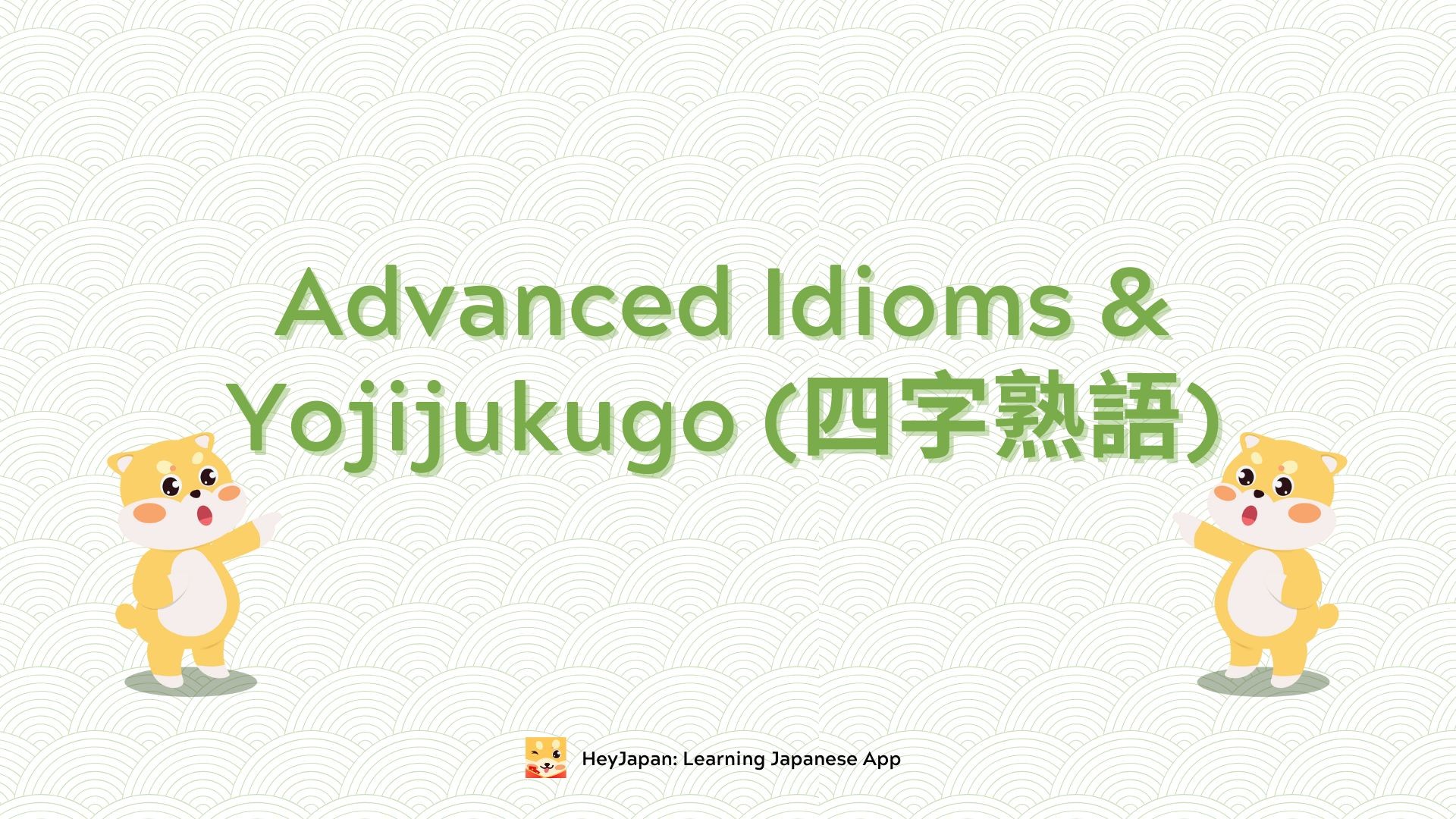
- 一石二鳥 (isseki nichou) – kill two birds with one stone
- 臨機応変 (rinki ouhen) – adapting to the situation
- 無我夢中 (muga muchuu) – being absorbed in something
- 因果応報 (inga ouhou) – karma; cause and effect
- 起死回生 (kishi kaisei) – revival from the brink of death
- 一期一会 (ichigo ichie) – once-in-a-lifetime encounter
- 十人十色 (juunin toiro) – to each their own
- 絶体絶命 (zettai zetsumei) – desperate situation
- 一長一短 (icchou ittan) – pros and cons
- 我田引水 (gaden insui) – self-serving action
Example:
このプロジェクトは一石二鳥の効果がある。
Kono purojekuto wa isseki nichou no kouka ga aru.
"This project has the effect of killing two birds with one stone."
5. FAQ (Frequently Asked Questions)
Q1: What counts as “advanced” Japanese vocabulary?
A: Words commonly used in formal, academic, business, or literary contexts, including kanji-rich and nuanced expressions.
Q2: How can I remember advanced words more effectively?
A: Use spaced repetition tools like Anki, apply vocabulary in writing, and consume native-level content regularly.
Q3: Is knowing kanji necessary for mastering advanced vocabulary?
A: Yes, most advanced words use complex kanji. Learning them helps deepen understanding and improve reading skills.
Q4: Are these words useful for the JLPT N1 exam?
A: Absolutely. Many of the words listed are common in JLPT N2/N1 and essential for high-level comprehension.

